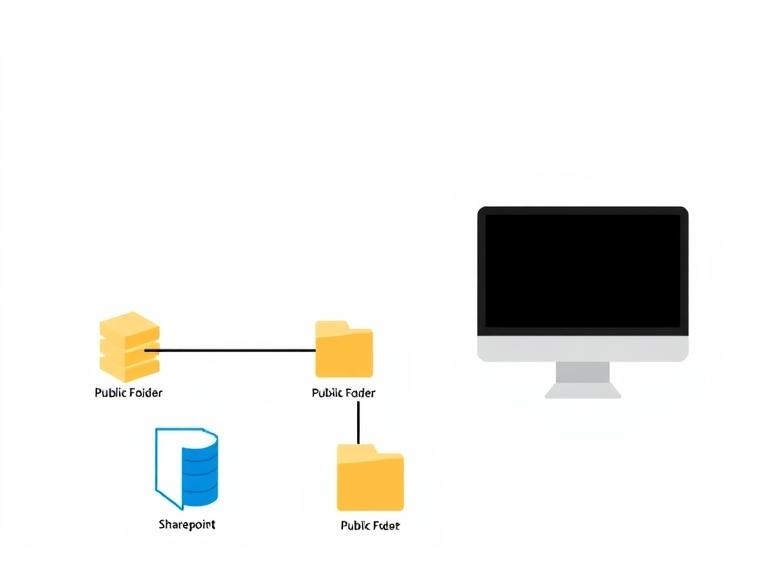The logistics industry has evolved significantly with advancements in technology, and one of the most impactful innovations is the Cloud-Based Warehouse Management System (WMS). Unlike traditional, on-premise warehouse management systems, cloud-based WMS offers enhanced flexibility, scalability, and efficiency. It enables businesses to optimize their warehouse operations, improve inventory management, and streamline supply chain processes.
In this article, we will explore the key benefits of a cloud-based WMS in logistics and how it revolutionizes warehouse operations.
Use a cloud-based WMS to gain control of your inventory
A cloud-based WMS is the key to achieving unparalleled precision and efficiency in inventory management, which is essential for any company’s success.
The first major benefit of a cloud-based WMS is the immediate availability of crucial inventory data, such as the present stock level, locations, and sales activity. A game-changer, this real-time visibility lets companies react fast to changes in demand, prevent stockouts or excess inventory, and guarantee on-time order fulfillment. Having accurate and current inventory data is crucial for both logistics and staying ahead in today’s fast-paced industry.
Beyond the realm of conventional inventory management, the capabilities of a cloud-based WMS expand into the realm of sophisticated analytics, providing valuable insights. In order to predict future demand, propose ideal reorder points, and advise efficient product placement, these systems examine past data in search of patterns. Better inventory decisions made possible by this data-driven strategy lead to lower costs and higher customer satisfaction as a result of more accurate orders and more readily available stock.
In sum, a cloud-based WMS goes above and beyond conventional management techniques when it comes to inventory control by providing flexible features that can adjust to the market’s constant shifts. Let’s check out how other integrations enhance the capabilities even more.
Key benefits of a cloud-based WMS in logistics
1. Cost-Effective Implementation and Maintenance
One of the biggest advantages of a cloud-based WMS is its cost-effectiveness. Unlike on-premise solutions that require expensive hardware, installation, and maintenance, cloud-based systems operate on a subscription-based model. Businesses can significantly reduce upfront capital investments and ongoing IT maintenance costs.
Additionally, cloud providers handle software updates, security patches, and system enhancements, ensuring that companies always have access to the latest features without incurring additional expenses.
2. Scalability and Flexibility
A cloud-based WMS is highly scalable, making it an ideal solution for businesses of all sizes. Whether a company operates a single warehouse or multiple distribution centers, a cloud-based WMS can easily scale up or down based on business needs.
The flexibility of cloud solutions allows logistics companies to adapt to seasonal demand fluctuations, expand their warehouse operations, and integrate new functionalities without significant disruptions or costs.
3. Real-Time Inventory Visibility
Inventory visibility is crucial for efficient warehouse management. Cloud-based WMS provides real-time access to inventory data, enabling logistics managers to track stock levels, monitor product movements, and prevent stockouts or overstock situations.
With enhanced visibility, businesses can make data-driven decisions, optimize order fulfillment, and improve customer satisfaction by ensuring accurate and timely deliveries.
4. Enhanced Collaboration and Accessibility
Cloud-based WMS allows seamless collaboration between different stakeholders, including warehouse staff, suppliers, distributors, and customers. Since the system is accessible from any location with an internet connection, users can manage warehouse operations remotely.
This feature is particularly beneficial for businesses with multiple warehouse locations, as it ensures centralized control and coordination across all sites, improving overall efficiency and communication.
5. Faster Deployment and Integration
Traditional WMS solutions require extensive setup and configuration, which can take months to implement. In contrast, a cloud-based WMS can be deployed quickly, reducing downtime and enabling businesses to start benefiting from the system almost immediately.
Furthermore, cloud-based WMS solutions integrate seamlessly with other enterprise systems, such as Enterprise Resource Planning (ERP) and transportation software development company platforms, ensuring a smooth flow of data across the supply chain.
6. Advanced Automation and Process Optimization
Automation is a key feature of cloud-based WMS that enhances warehouse efficiency. By automating repetitive tasks such as inventory tracking, order processing, and picking/packing operations, businesses can minimize human errors and increase productivity.
Additionally, AI-powered algorithms can optimize warehouse layouts, recommend efficient picking routes, and improve overall workflow, leading to faster order fulfillment and reduced operational costs.
7. Improved Security and Data Protection
Data security is a major concern for logistics companies, and cloud-based WMS providers invest heavily in robust security measures. These systems use encryption, multi-factor authentication, and regular security audits to protect sensitive warehouse and inventory data from cyber threats.
Since data is stored in the cloud, it is safeguarded against physical damage or loss due to natural disasters, ensuring business continuity even in the face of unexpected disruptions.
8. Real-Time Analytics and Reporting
Cloud-based WMS provides powerful analytics and reporting tools that enable businesses to gain valuable insights into their warehouse operations. By analyzing key performance metrics such as order accuracy, inventory turnover, and warehouse utilization, companies can identify areas for improvement and implement data-driven strategies.
These insights help logistics companies optimize their supply chain, reduce waste, and enhance overall efficiency.
9. Compliance with Industry Standards
Logistics and warehouse operations must comply with various industry regulations, such as safety standards, inventory tracking requirements, and labor laws. Cloud-based WMS solutions often come with built-in compliance features, helping businesses meet regulatory requirements with ease.
Automated compliance tracking reduces the risk of penalties and ensures smooth operations, making it easier for businesses to maintain industry standards.
10. Enhanced Customer Satisfaction
A well-optimized warehouse translates to better order accuracy, faster delivery times, and improved customer satisfaction. Cloud-based WMS ensures that businesses can fulfill orders more efficiently, reduce errors in shipments, and provide customers with accurate tracking information.
By enhancing customer experience, logistics companies can build stronger relationships with their clients, increase brand loyalty, and gain a competitive edge in the market.
11. Sustainable and Eco-Friendly Operations
Sustainability is becoming increasingly important in logistics, and cloud-based WMS contributes to eco-friendly warehouse management. By optimizing inventory storage, reducing waste, and minimizing energy consumption, businesses can lower their carbon footprint.
Additionally, cloud solutions reduce the need for paper-based processes, supporting digital transformation and promoting environmentally sustainable practices.
12. 24/7 Support and System Reliability
Cloud-based WMS providers offer round-the-clock technical support and system reliability, ensuring minimal disruptions to warehouse operations. With cloud-based infrastructure, businesses can access real-time troubleshooting, receive automatic system updates, and ensure continuous system availability.
This level of reliability is essential for logistics companies that operate in time-sensitive environments where any system downtime can lead to significant losses.
Conclusion
The adoption of a cloud-based warehouse management system is a game-changer for logistics businesses, offering a wide range of benefits, including cost savings, scalability, real-time inventory visibility, automation, enhanced security, and improved customer satisfaction. By leveraging cloud technology, logistics companies can streamline their operations, optimize supply chain management, and stay competitive in an increasingly digital world.
As cloud technology continues to evolve, investing in a robust cloud-based WMS will be essential for businesses looking to enhance efficiency, reduce operational costs, and improve overall warehouse performance. With its ability to adapt to changing business needs and integrate with modern logistics solutions, cloud-based WMS is undoubtedly the future of warehouse management.













